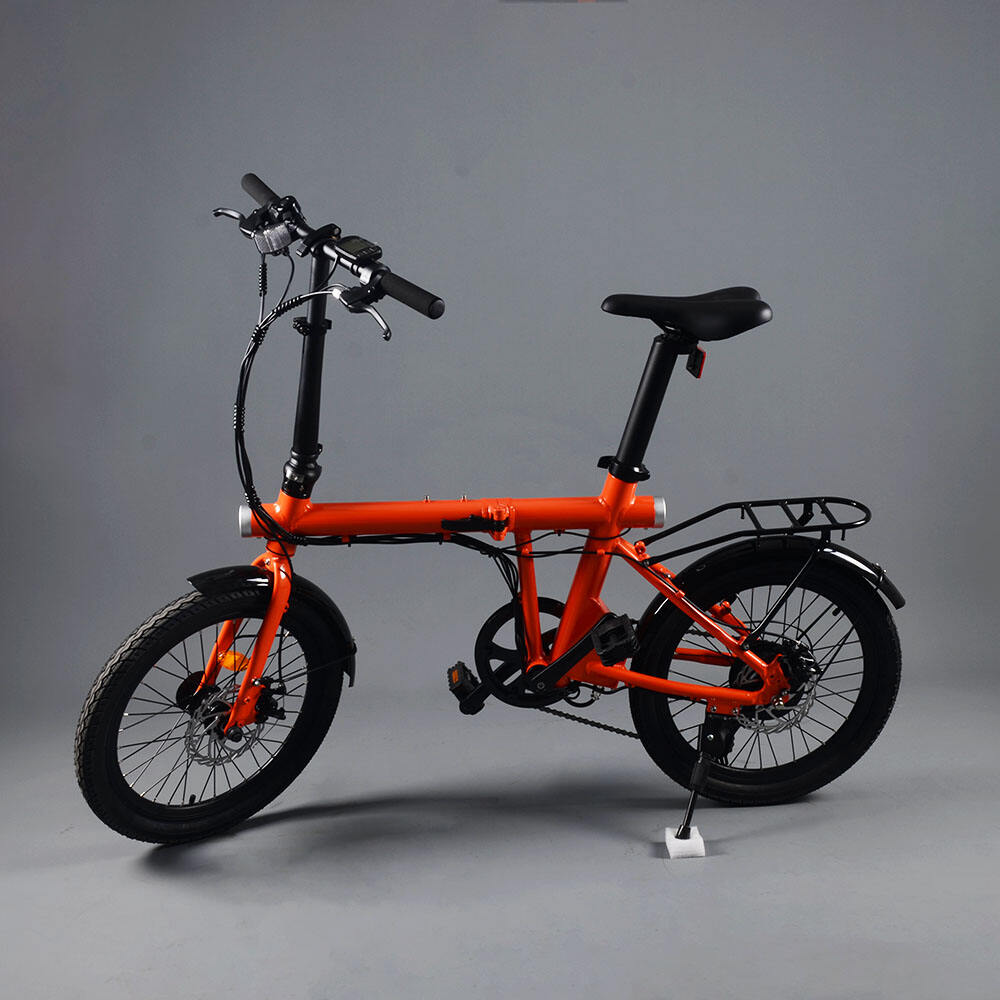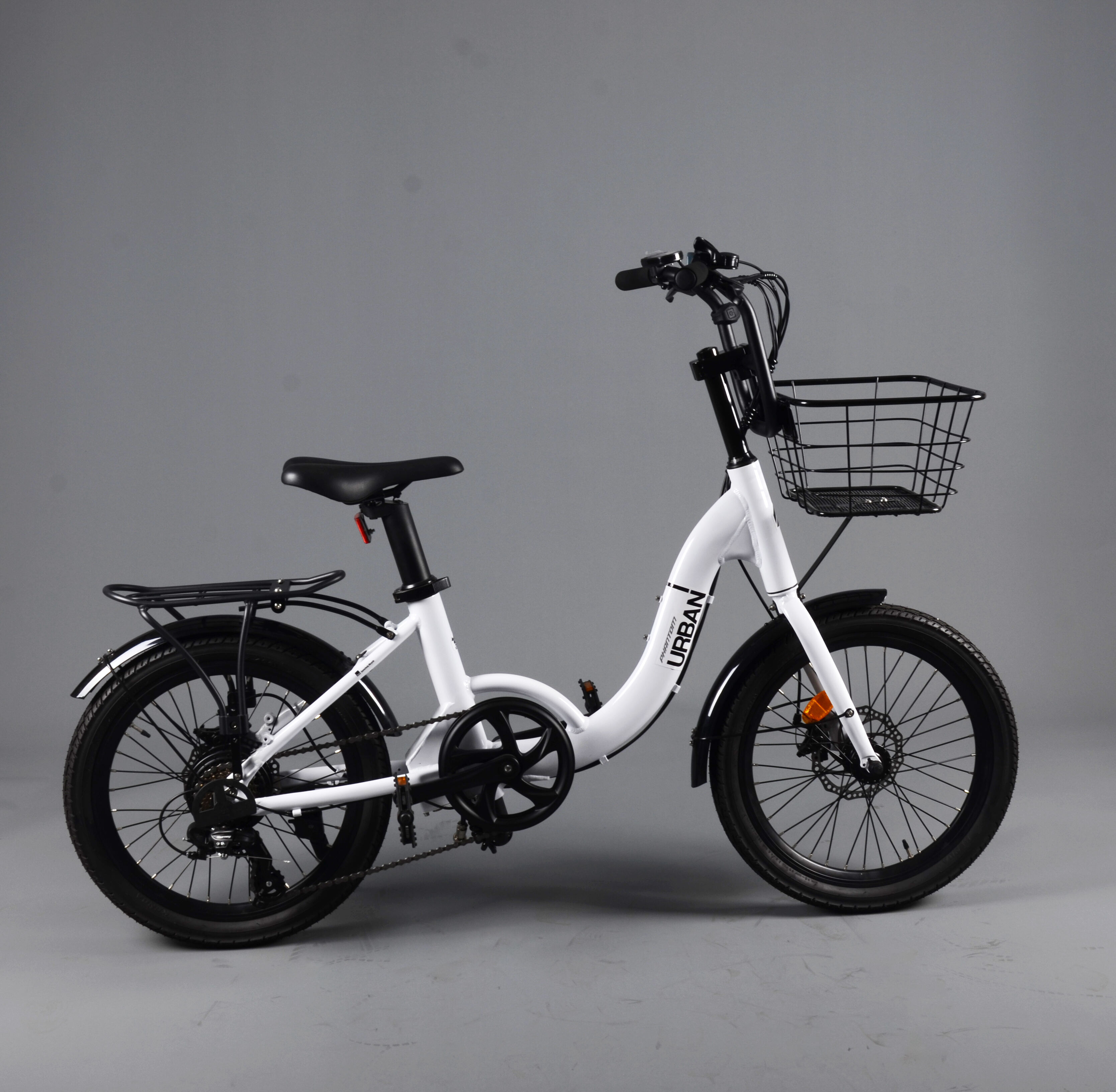Transforming Urban Transportation Through Sustainable Mobility
As cities worldwide grapple with increasing pollution and traffic congestion, the city electric bike emerges as a groundbreaking solution that promises to revolutionize urban transportation. These innovative vehicles represent the perfect fusion of traditional cycling and modern technology, offering an environmentally conscious alternative to conventional transportation methods. The growing adoption of city electric bikes marks a significant shift toward sustainable urban mobility, with profound implications for our environment and quality of life.
In recent years, the popularity of city electric bikes has surged dramatically, driven by heightened environmental awareness and the urgent need to reduce carbon emissions in urban areas. These sophisticated machines combine the simplicity of regular bicycles with electric assistance, making them an ideal choice for city dwellers seeking an eco-friendly transportation option that doesn't compromise on convenience or efficiency.
Carbon Footprint Reduction and Air Quality Improvement
Minimizing Greenhouse Gas Emissions
One of the most significant environmental benefits of a city electric bike lies in its minimal carbon footprint. While traditional vehicles emit substantial amounts of greenhouse gases, a city electric bike produces zero direct emissions during operation. The electricity required to charge these bikes results in significantly lower carbon emissions compared to the fuel consumption of cars, especially when powered by renewable energy sources.
Studies have shown that replacing just 10% of urban car trips with city electric bike journeys could reduce transportation-related carbon emissions by up to 12% in major cities. This remarkable potential for environmental impact becomes even more significant when considering the cumulative effect of widespread adoption across metropolitan areas.
Enhanced Urban Air Quality
Beyond carbon emissions, city electric bikes contribute to cleaner air by eliminating the release of harmful pollutants such as nitrogen oxides, particulate matter, and volatile organic compounds. These pollutants, commonly associated with traditional vehicles, have been linked to various respiratory problems and reduced quality of life in urban areas.
The transition to city electric bikes can help create cleaner, healthier urban environments, particularly in densely populated areas where air pollution tends to concentrate. This improvement in air quality has far-reaching benefits for public health and environmental preservation.

Resource Conservation and Energy Efficiency
Reduced Energy Consumption
City electric bikes demonstrate remarkable energy efficiency compared to conventional vehicles. While a typical car requires thousands of watt-hours per mile, a city electric bike consumes merely 5-15 watt-hours per mile, representing an energy saving of up to 98%. This extraordinary efficiency translates into significantly reduced pressure on energy resources and power infrastructure.
The minimal energy requirements of city electric bikes also mean they can be easily powered by renewable energy sources, further enhancing their environmental credentials. Solar-powered charging stations are becoming increasingly common in urban areas, creating a truly sustainable transportation ecosystem.
Material and Manufacturing Impact
The environmental benefits extend to the manufacturing process as well. A city electric bike requires considerably fewer raw materials and energy to produce compared to automobiles. The smaller size and simpler construction mean less mining, processing, and transportation of materials, resulting in a lower environmental impact throughout the product lifecycle.
Additionally, the longevity and durability of modern city electric bikes ensure they remain in service for many years, reducing the need for frequent replacement and the associated environmental costs of manufacturing new vehicles.
Urban Space Optimization and Infrastructure Benefits
Reduced Traffic Congestion
City electric bikes play a crucial role in alleviating urban congestion. Their compact size allows riders to navigate through traffic more efficiently, reducing time spent idling and the associated environmental impact. Studies indicate that widespread adoption of city electric bikes could reduce traffic congestion by up to 25% in busy urban centers.
The reduced space requirements of city electric bikes also mean that parking infrastructure can be more efficiently utilized. While a single car parking space can accommodate up to 10 electric bikes, this dramatic improvement in space efficiency helps cities reduce the environmental impact of expanding parking infrastructure.
Infrastructure Preservation
The lightweight nature of city electric bikes results in significantly less wear and tear on road infrastructure compared to heavy vehicles. This reduced impact means less frequent road maintenance and repair, leading to decreased consumption of resources and lower environmental impact from construction activities.
Furthermore, the infrastructure required for city electric bikes, such as dedicated lanes and charging stations, has a minimal environmental footprint compared to traditional transportation infrastructure. This efficiency in infrastructure development and maintenance represents another significant environmental advantage.
Frequently Asked Questions
How much can a city electric bike reduce my carbon footprint?
By switching from a car to a city electric bike for daily commuting, you can reduce your transportation-related carbon emissions by up to 90%. This calculation takes into account the minimal electricity consumption of e-bikes and the potential use of renewable energy for charging.
What is the environmental impact of e-bike batteries?
While e-bike batteries do have an environmental impact during production, their long lifespan (typically 3-5 years) and recyclability minimize this concern. Modern lithium-ion batteries are increasingly recyclable, and many manufacturers offer battery recycling programs to ensure responsible disposal.
Do city electric bikes really make a difference to urban air quality?
Yes, studies have shown that increased adoption of city electric bikes can significantly improve urban air quality. When combined with other sustainable transportation initiatives, e-bikes can help reduce harmful air pollutants by up to 30% in high-traffic areas, leading to measurable improvements in air quality and public health.

